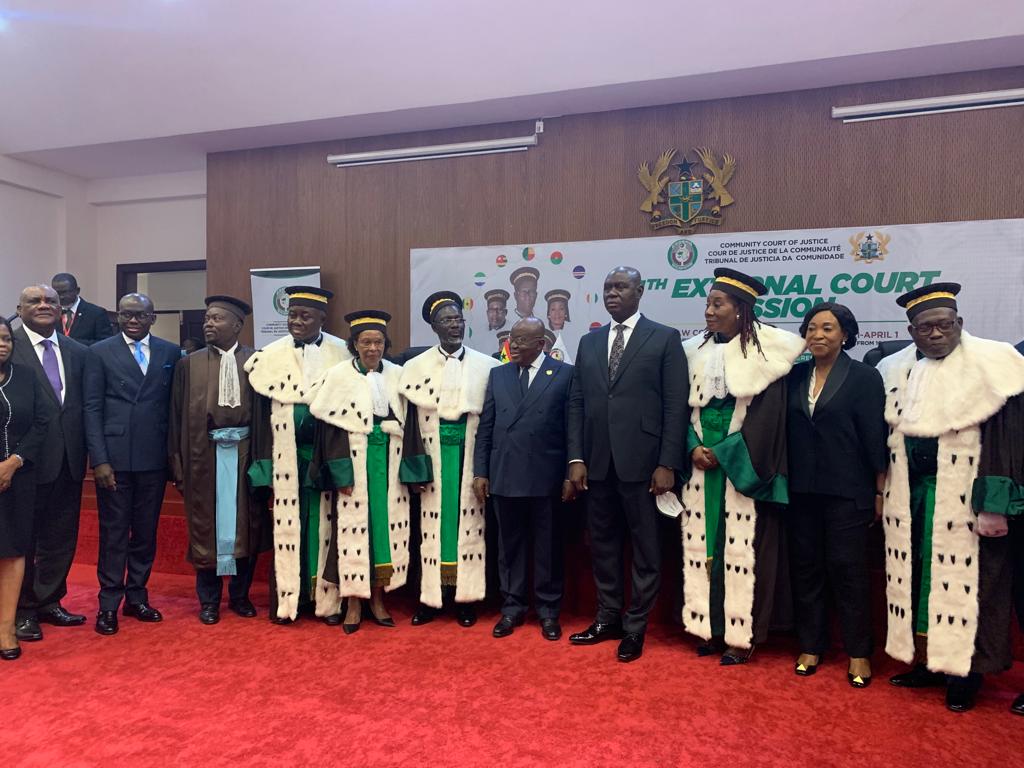Our external court sitting in Accra achieved over 90% success rate – ECOWAS Court President
He indicated that the Court delivered 20 judgments, the highest so far since the court began its external sessions.

President of the ECOWAS Community Court of Justice, Edward Amoako Asante, has stated that the External Court Session in Accra had achieved a 90 per cent success rate as the court was able to deliver 20 judgments compared to the previous 11 in its other external court sessions.
He indicated that the 20 judgments were the highest so far since the court began its external sessions.
“We are happy to announce that our external court sitting in Accra achieved over 90 per cent success rate. There is no mean achievement and ought to be celebrated as part of the progress in entrenching the activities and impact of the court in the community,” Justice Asante said at the closing ceremony of the Court’s 11th External Session in Accra, which happened between March 21 and April 1, 2022.
38 cases were heard during the external court session at the Law Courts Complex in Accra. Some of which included, Transparency International vrs Ghana on the Agyapa deal and others involving human rights violations.
Justice Amoako Asante however stressed the need for Member States to design new approaches to enforce the court’s judgments.
Having been described as a problem, it is noted that only 34 per cent of the Court’s judgments are enforced by member states.
In addition to that, only six member states had appointed National Authorities for the purpose of execution of judgments.
“No Member State has communicated to the court the status of decisions and judgments complied with so far. However the court has been able to get unofficial information from lawyers and parties involved in some cases,” Justice Amoako Asante said.
He reiterated that enforcement of the court’s decisions will require close collaboration with national courts and institutions of member states.
Chief Justice Kwasi Anin Yeboah said Ghana was proud to be part of the historic sessions of the court and further urged member states to seriously consider proposals on the tenure and number of judges that sit at the court.


